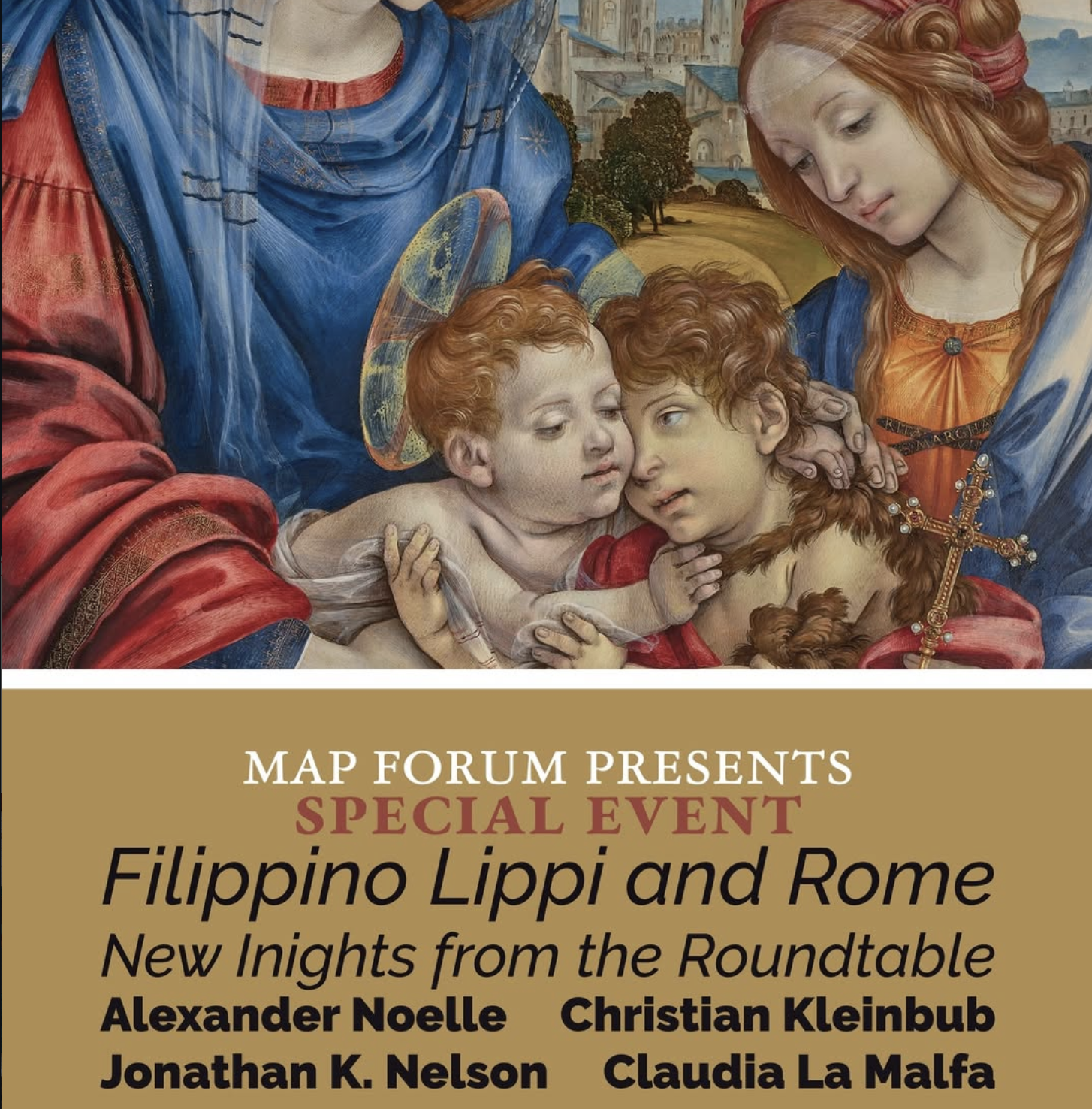Upcoming Events
Announcements & Call for Papers
Publications

The Medici Archive Project (MAP) is an independent research institute whose aim is to preserve and valorize the archives of the Medici dynasty, which comprise over fifteen million documents (many of them are featured in the MIA DATABASE). MAP also serves as a major academic hub for scholars and students worldwide in the field of Italian Renaissance and early modern studies.

The exhibition Filippino Lippi and Rome offers a fresh and illuminating reconsideration of how one of the great painters of the Italian Renaissance reinterpreted antiquity during his transformative Roman years (1488–93). Now on view at the Cleveland Museum of Art, the exhibition examines Lippi’s evolving relationship to classical sculpture and architecture by juxtaposing his Roman paintings with their Florentine antecedents and successors, as well as with drawings and antiquities. In a roundtable organized by the MAP Forum, four scholars, including the exhibition’s curator, Alexander Noelle, will share their insights into this groundbreaking project, exploring Lippi’s legacy, the dialogue between Florence and Rome, and the broader implications of the exhibition for understanding early Renaissance artistic exchange.

The exhibition Filippino Lippi and Rome offers a fresh and illuminating reconsideration of how one of the great painters of the Italian Renaissance reinterpreted antiquity during his transformative Roman years (1488–93). Now on view at the Cleveland Museum of Art, the exhibition examines Lippi’s evolving relationship to classical sculpture and architecture by juxtaposing his Roman paintings with their Florentine antecedents and successors, as well as with drawings and antiquities. In a roundtable organized by the MAP Forum, four scholars, including the exhibition’s curator, Alexander Noelle, will share their insights into this groundbreaking project, exploring Lippi’s legacy, the dialogue between Florence and Rome, and the broader implications of the exhibition for understanding early Renaissance artistic exchange.
Individuals who join Friends of MAP share in the thrill of historical discovery thanks to special experiences reserved just for them, including the MAP Forum (our online lecture series), and a host of other features such as weekly free lessons in reading Italian documents called “Friday Lunch Letters.”